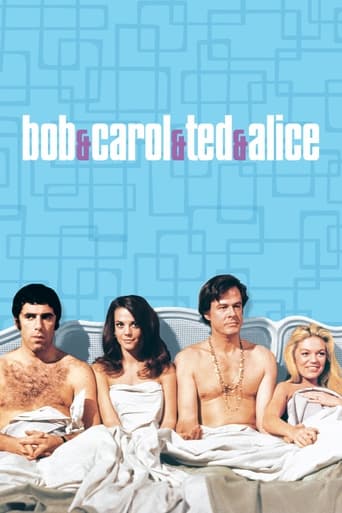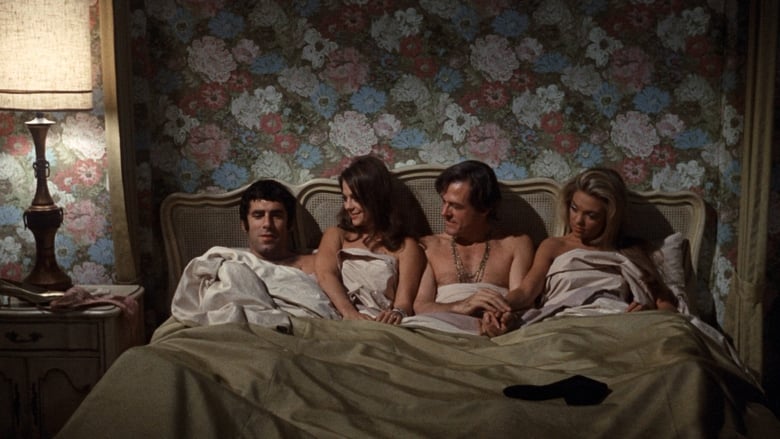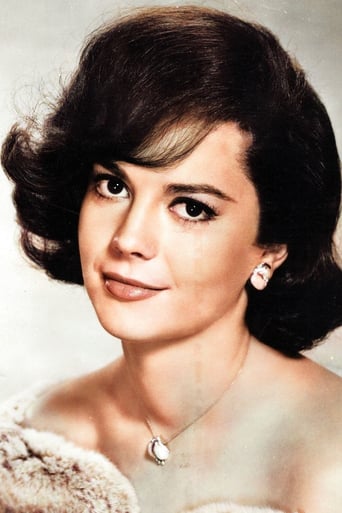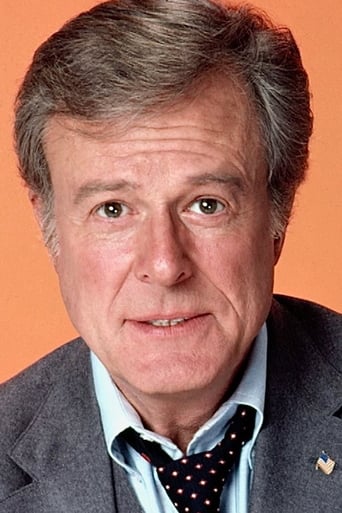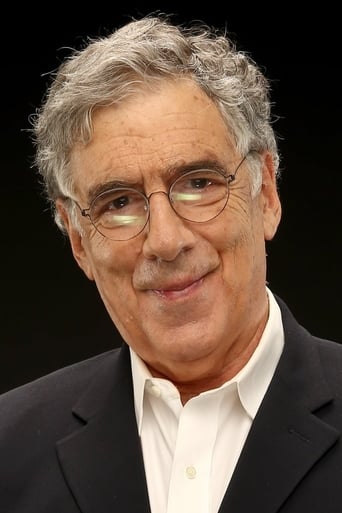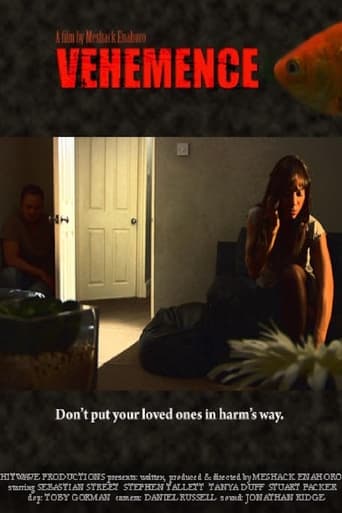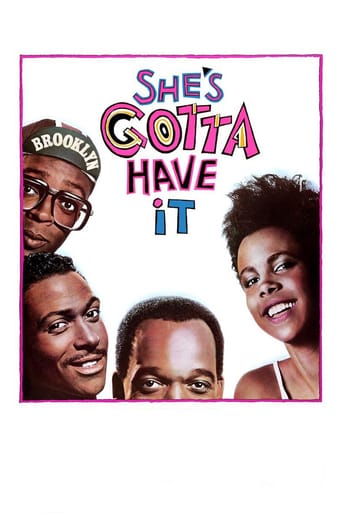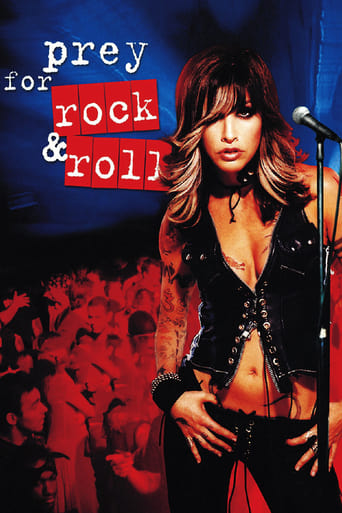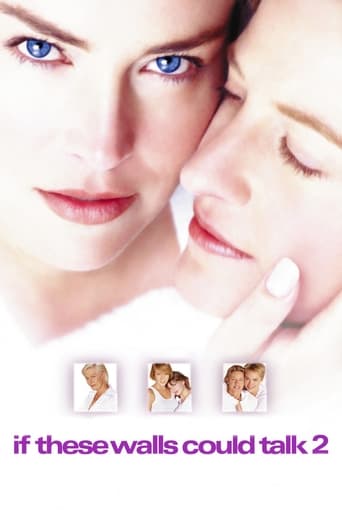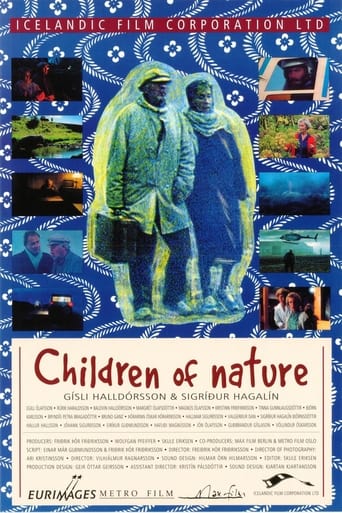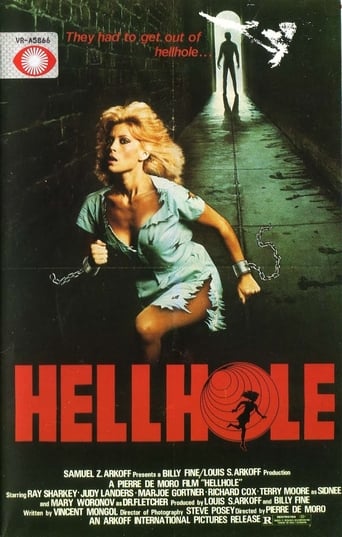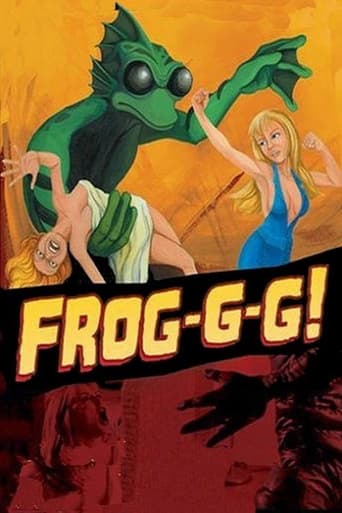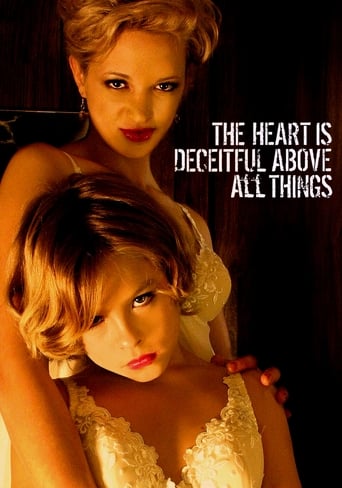Bob & Carol & Ted & Alice (1969)
After returning to Los Angeles from a group therapy session, documentary filmmaker Bob Sanders and his wife, Carol, find themselves becoming vigilante couples counselors, offering unsolicited advice to their best friends, Ted and Alice Henderson. Not wanting to be rude, the Hendersons play along, but some latent sexual tension among the four soon comes bubbling to the surface, and long-buried desires don't stay buried for long.
Watch Trailer
Cast
Similar titles
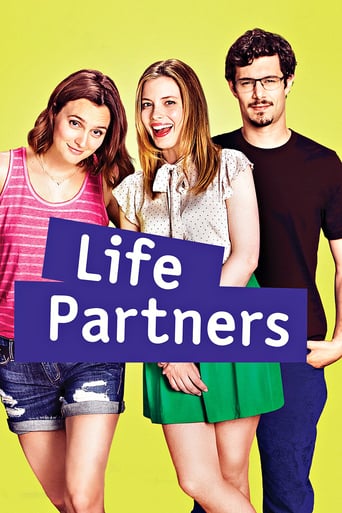
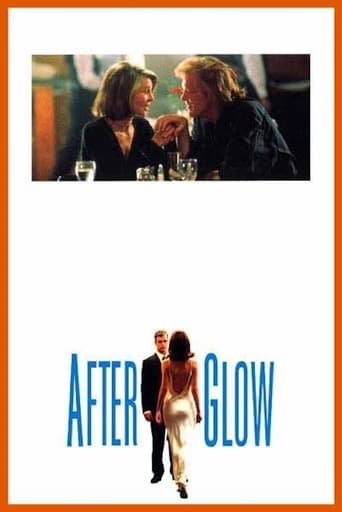
Reviews
Very Cool!!!
i know i wasted 90 mins of my life.
The performances transcend the film's tropes, grounding it in characters that feel more complete than this subgenre often produces.
One of the most extraordinary films you will see this year. Take that as you want.
This film was quite revolutionary for the time period of 1969 about sexuality, marriage and fidelity. Two Los Angeles professional couples are Bob (Robert Culp) and Carol (Natalie Wood in a surprising role) and Ted (Elliott Gould) and Dyan Cannon (Alice) who spend the entire movie discussing sexuality and monogamy. The two couples are both attractive and successful and best friends with each other as well. The build-up scene for the foursome is quite developed and realistic. Both husbands have flings or one night stands while Alice is still a holdout for being faithful. The film begins with Bob and Carol at a new age institute common for the era. The film showed Los Angeles in the sixties as an up and coming city. They lead comfortable, successful lives but something seems missing . The surprise performance was Natalie Wood in her role.
This movie is demanding. If you want to appreciate what is there and there is a lot, you gotta stay focused. The humor does not hit you over the head and it is satire, so it isn't really laugh out loud stuff. I couldn't see this movie when it came out, it was rated R. And I am sure I would have hated it until I was around 40. Tonight was my first experience and it was nothing like what I expected. It starts out like a sort of documentary examining a group not unlike Marriage Encounter. Then two of these participants continue their lives with all of their "learning" ignoring their instincts. Alice, who is certainly much less uninhibited than the others, turns out to be the hero because she didn't sacrifice her values to go along with some idiotic idea of becoming a more focused person. The ending is a knockout. It brings happy tears. This film cannot date. And it is remarkable that it reflected so honestly on its own era. Not a casual entertainment.
Don't let the famous poster of this swinging comedy of the late 1960's fool you; This is actually more a study of two marriages, two inseparable couples. This shows how modern morals changed the way people communicated, and how they just interrelate. These couples believe in total honesty, but it takes its toll on the real star of the film, Oscar nominated Dyan Cannon. This starts with the seemingly leading couple of Robert Culp and Natalie Wood heading towards a spa, driving into the beautiful countryside as the "Hallelujah Choir" plays lushly in the background. Wood finally gets to be free and honest and practically has a nervous breakdown over it. Back home, they begin to change their existence based upon their experience, and when motherly Cannon overhears Wood's blase revelation that Culp had an affair, she looses it, pretty much having a nervous breakdown in a very groovy nightclub. The tides turn as the honesty leads them to decide to switch partners, Wood ending up with Cannon's husband (a very droll Elliot Gould) and Culp preparing to make love with his best friend's wife, all in a rather tiny bed.So you can say that this is not as wild as it looks, supposedly happily married couples getting together and seeing if they can be as swinging as the world has been trying to tell them that it's OK to be. But individual morals are stronger than sexual desires, so there's a great lesson for them to learn. Thanks to a witty and smart screenplay, this ends up being surprisingly sweet, and nobody gets to point and laugh.
I watched this film again having first seen it on late night TV in the mid 1980s when I was twenty. I thought it would be unintentionally funny, expecting it to have dated badly. How wrong I was! This film is an important timepiece, a fascinating insight in to hip west coast middle class life at a time when America was still on top of the world, yet to realize it would all be downhill from there. The film has stood up remarkably well, it's subject matter still poignant. The cultural and social concepts of fidelity are forever shifting, often turning full circle making films like B&C&T&A relevant and thought provoking some forty years after release. The film is beautifully directed by Mazursky, and is arguably the finest work ever done by all four leads in the film. I found it fascinating observing each performance closely – noting how the actors juggled their obvious affection for their character, while at the same time being true to Mazursky's raison d'être – a gentle dig at the new social mores of the wealthy west coast hip set. Delicately picking at the counter-culture as if choosing hors d'oeuvres from a waiter at a cocktail party, Bob and Carol experiment with dope, extra marital sex and new age group therapy. The dialogue sparkles, the actors so in tune with Mazursky's vision they breathe life in to what are essentially caricatures. At times the film is laugh out loud funny, though not unintentionally as I had expected. I was surprised to realize the film was released in 1969, thinking it was more an early 70s creation, so ahead of its' time does it seem even today. It was years before other artists dared tackle the difficult subject of middle class vacuity, and rarely with the eloquence and humour of this film. The film is also sumptuous to look at, Bob and Carol's elegant faux Spanish villa positively luxurious even by today's standards. The scene of the foursome cruising to Las Vegas in Ted's convertible Cadillac is an elegiac vision, a scene of America that no longer exists. A time when wealthy Americans still bought Cadillacs, when Las Vegas was seen as a place of glamor and fun and despite the social unrest and Vietnam, America was still big, brash and confident. The greatest civilization in the history of the world, all there to see as the white ragtop barrels down the highway, the foursome laughing and in high spirits – a scene that in some ways summed up the theme of the movie. With so much at their fingertips, the luckiest people to have ever lived, but they don't know what to do with the privilege. They are lost, their search for sexual and emotional fulfillment nothing more than a desperate search for meaning, a sad attempt to fill a nagging void. In the mid 1980s, former Eagle front man Don Henley had his last big hit with 'The Boys Of Summer', in which he sings of his dismay at seeing a new Cadillac pass him on the LA freeway, a Dead-head sticker on the bumper. The former hippies, the baby boomers, had sold out. Mazursky was telling us the same thing fifteen years earlier. Perhaps Pete Townsend of the Who summed it up best in his anthemic Won't Get Fooled Again – 'meet the new boss, same as the old boss' A highly thought-provoking experience seeing this film again, and for those interested in culture, counter or otherwise – this is a must.
